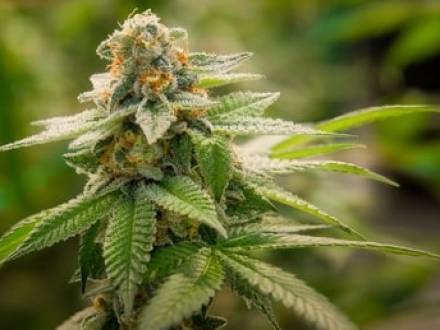2591 Dallas Parkway, Suite 207A, Frisco, TX 75034
Free Consultations
469-333-3333
 |
DO I HAVE TO GO TO TRIAL IN TEXAS? |
What You May Not Know About Hemp and THC Edibles in Texas
 Outside of some of the larger cities in Texas, where possession of small amounts of cannabis has been decriminalized, the state of Texas continues to have the harshest laws and penalties for marijuana possession. This extends to hemp and edibles with THC. While hemp can contain THC, it typically has much lower concentrations, along with higher amounts of cannabidiol (CBD), which reduces the psychoactive effects of THC.
Outside of some of the larger cities in Texas, where possession of small amounts of cannabis has been decriminalized, the state of Texas continues to have the harshest laws and penalties for marijuana possession. This extends to hemp and edibles with THC. While hemp can contain THC, it typically has much lower concentrations, along with higher amounts of cannabidiol (CBD), which reduces the psychoactive effects of THC.
The legality of hemp, oils, and THC edibles in the state hinges on the level of concentration of THC. Because Texas has not yet legalized medicinal or recreational marijuana, being charged with a marijuana crime can have serious consequences. It is essential that you have an experienced Frisco marijuana crimes lawyer to help you sort out the legalities and build a solid defense on your behalf.
Has Texas Legalized Medical Marijuana?
Texas has not legalized medical marijuana in the same way that many other states have, but it does have a program called the Texas Compassionate Use Program (CUP) that gives patients with certain conditions—like epilepsy—the ability to get a prescription for marijuana from a physician registered with the program. Laws that regulate CUP can be found in Chapter 169 of the Texas Occupations Code and Chapter 487 of the Texas Health & Safety Code.
Is Hemp Legal in Texas?
Several hemp laws have been passed in Texas over the past few years that allow licensed growers to grow and manufacture hemp. These laws extend to the sale of CBD products and other low-THC products. Marijuana and hemp are visually very similar, although hemp contains much lower levels of THC than marijuana.
CBD is known for its relaxation properties and may come in edibles like gummies or cookies, vapes, or dried flowers. As noted, licensed growers can grow and sell hemp, but only when it contains less than 0.3 percent of active Delta-9 THC. Hemp flowers have high amounts of CBD and low levels of THC and are often used in tinctures and medications. Hemp seed oil can help with inflammation and arthritis.
What Are the Differences Between Delta-8 and Delta-9
Delta-8 and Delta-9 are derived from cannabinoids found in marijuana but at very low dosages—0.3 percent (dry weight) per product. Delta-8 molecules are not as psychoactive as Delta-9, which has larger molecules and only requires very little product. Delta-8 is a much milder "high," while Delta-9 is known for its intoxicating effects. This is because Delta-8 is metabolized differently in the body, converting into 11-hydroxy-THC. You could potentially fail a drug test after consuming either of these edibles.
What Can You Legally Buy in Texas—and What Are the Penalties for THC?
In the state, you are only legally allowed to buy products with a maximum level of 0.03 percent of THC. Whether you are buying CBD, edibles, Delta-8, or Delta-9, you must be aware of the level of THC in the product. Hemp flowers and hemp can be made into edibles or can be smoked—but only if it remains within the legal limits—and this can be hard to prove until the product can undergo testing. Possession of under one gram of THC in edibles, CDB, hemp, or other products—but more than the allowed levels—is a state jail felony. One to four grams is a third-degree felony, and four to 400 grams is a second-degree felony. Penalties may increase with higher THC concentrations.
Contact a Collin County, TX Marijuana Crimes Lawyer
If you have been charged with a marijuana crime as a result of edibles, oils, Delta-8, Delta-9, hemp, CBD, or any other product with a low level of THC, you need a strong, experienced attorney. Having a Frisco, TX marijuana crimes attorney building a defense on your behalf is essential for the best outcome possible. At Law Offices of Biederman & Burleson P.L.L.C., our attorneys have more than 25 years of combined experience and more than 500 trial victories. Contact Law Offices of Biederman & Burleson P.L.L.C. at 469-333-3333 to schedule a free consultation.


 600+ DWI & CRIMINAL DEFENSE TRIALS
600+ DWI & CRIMINAL DEFENSE TRIALS
















